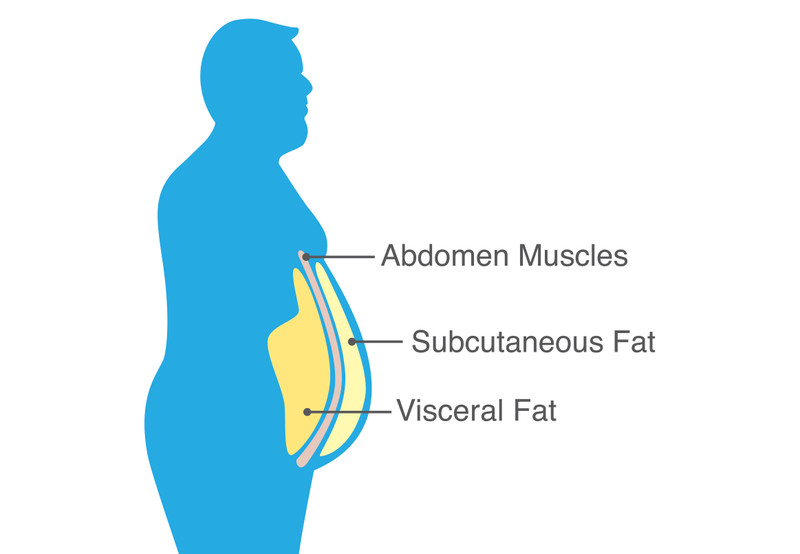It is natural and necessary for a certain portion of the body to be comprised of fat but not to excess. Visceral fat is known to be the unhealthiest type of excess body fat. Here, we take a look at why visceral fat is unhealthy, and then discuss three of the best natural supplements to promote visceral fat reduction.
Why Visceral Fat Is Unhealthy
Visceral fat is the type of excess fat stored on the abdomen and that surrounds the internal organs. It is common knowledge that being overweight puts a person at increased risk of a variety of health problems. But why? The most basic reason is that an abundance of visceral fat commonly leads to a state of chronic inflammation in the body.
Furthermore, the presence of visceral fat affects the body’s metabolism. It produces hormones and signaling molecules that can trigger cytokine production, leading to inflammation. Chronic low-grade inflammation is a primary contributing factor to disease.
The inflammation resulting from excess visceral fat has been proven to put a person at an increased risk of heart disease of various kinds, including the risk of cardiac events such as heart attack and stroke. The metabolic effects of visceral fat extend to insulin as well, and can block its absorption, causing type II diabetes. Other health conditions can also occur as a result of long-term inflammation related to excess visceral fat.
Fortunately, the accumulation and retention of visceral fat is within a person’s control. A diet that is rich in whole foods such as lean protein, vegetables, and fruits, and low in processed foods and sugar, helps significantly to reduce visceral fat. Consistent aerobic exercise over a sustained period of time is also proven to reduce visceral fat, especially when done in tandem with a healthy diet.
Natural Supplements to Reduce Visceral Fat
Nutrients can in affect visceral fat and certain aspects of bodily health in ways which could mitigate the retention of visceral fat. These are useful when used properly in addition to (but not in place of) healthy lifestyle choices. Following are several supplements believed to be worthy foes of visceral fat:
Probiotics: Probiotic bacteria have beneficial properties that aid your gut and general digestive health, and they are present in some foods and available in supplement form. Studies show that taking a probiotic supplement can contribute to reduced levels of visceral fat as well as a diminished body mass index (BMI). The benefits of probiotic bacteria in reducing visceral fat, as well as supporting a healthy gut microbiome, make it a worthwhile supplement for mitigating risk of heart disease.
Rose hips are a fruit of the Rosaceae family, and are grown and harvested in America, Europe, and elsewhere. The medicinal benefits of rose hips are many. It is a natural source of vitamin C. Given its many uses, rose hips are harvested and made available in tablet form, often combined with vitamin C. One study provides evidence that a 100mg tablet of concentrated rose hips taken daily for 12 weeks correlates with a meaningful reduction in visceral fat. This benefit extends to body weight and BMI, as well.
Green tea extract is another plant-derived supplement which could contribute to the shedding of excess fat. Green tea extract contains natural antioxidants and other substances which can bolster waking energy expenditure, even while a person is at rest, and it can also black fat absorption. Green tea extract’s contributions toward calorie expenditure and reducing fat absorption make it potentially effective in helping weight loss. When taking green tea extract, it is important to take only the recommended dosage.
If you decide to make an effort to eliminate at least some excess visceral fat from your body, one of these supplements mentioned above would be an easy addition to the healthy diet and simple lifestyle choices. It is recommended that you consult your healthcare provider before taking a supplement.

